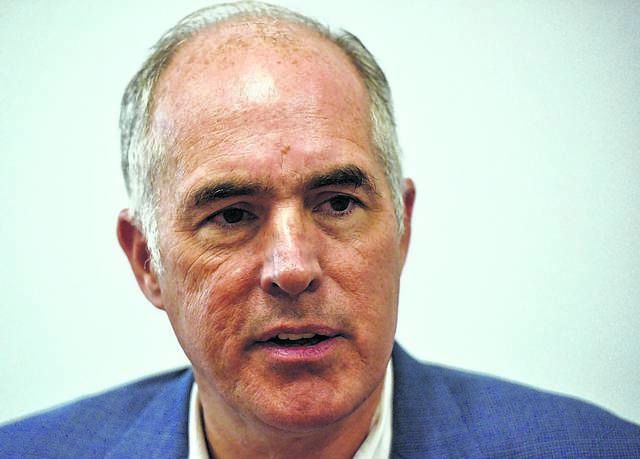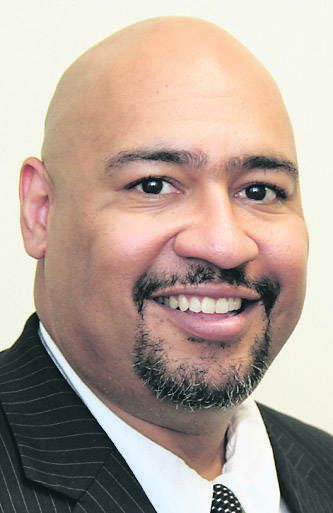Click here to subscribe today or Login.
WILKES-BARRE — Attorney General Shapiro this week released a new guide advising Pennsylvanians of their rights, protections, and supportive programs available to the over one million recently unemployed Pennsylvanians who have been impacted by the COVID-19 emergency.
“My office is working to protect the health, safety, and financial security of all Pennsylvanians during this public health and economic emergency,” Shapiro said. “With the intense amount of information and misinformation out there, we wanted to help individuals impacted by this crisis, know the facts, their rights, and what they are entitled to during these uncertain times.”
The rights and resources guide details benefits available to Pennsylvanians during the COVID-19 emergency, including:
• Guaranteed access to utilities like heat, water, and electricity.
• Moratorium on evictions, foreclosures, and auto repossessions.
• Grace period for paying student loans.
• Grace period for paying home and auto loans.
• Waived payments from banks for late and overdraft fees.
• Expanded unemployment eligibility to gig workers, contract workers who use 1099 forms to pay, workers with previously inadequate employment history, and part time workers.
• Increased unemployment benefits, roughly double the previously available.
• And up to 2 weeks paid-leave for individuals caring for a sick family member or child whose school has closed.
The guide is available to Pennsylvanians, and contains information about who to contact for each of the benefits and protections it discusses.
Rep. Cartwright working
to protect older citizens
U.S. Rep. Matt Cartwright, D-Moosic, this week held a listening session with leaders of the Area Agencies on Aging from Lackawanna, Luzerne, Monroe and Wayne counties to share their questions, suggestions and concerns related to protecting older northeastern Pennsylvanians during the COVID-19 outbreak.
“As our communities deal with the coronavirus, the health and safety of our older adults is top of mind,” Cartwright said. “Our aging agencies in northeastern Pennsylvania are doing a great job adapting to the challenges posed by this virus and meeting our seniors’ demand for meal delivery, legal services, and even exercise, while observing social distancing guidelines. Our job in Congress going forward is to ensure the agencies have the resources to keep this up for as long as they need to.”
The agency representatives said that so far, they have been able to meet higher demand for meal delivery services for the elderly in their areas. They also discussed remote activities such as exercise classes and legal services, and how they are checking in on senior center participants while the facilities are closed.
Cartwright pointed out that government agencies will not call anyone and ask for personal information over the phone, and that the prevalence of these scams was a key reason why he introduced legislation to federally fund senior legal hot lines, ensuring that older Americans have a reliable place to turn for legal help while practicing social distancing.
He also reiterated that most people — including seniors who rely on Social Security — will not have to take any extra steps in order to receive their direct cash payment of $1,200 provided by the Coronavirus Aid, Relief and Economic Security (CARES) Act. Thanks to a bipartisan effort of both Democrats and Republicans, the Internal Revenue Service (IRS) eliminated unnecessary requirements for older Americans and will use the information they already have on file.
The three COVID-19 relief packages enacted in March include several provisions to support seniors during the COVID-19 outbreak.
Nutrition Programs: Waived nutrition requirements for Older Americans Act (OAA) meal programs during the public health emergency related to COVID-19 to ensure seniors can get meals in case certain food options are not available. Provided $850 million in emergency funding for The Emergency Food Assistance Program (TEFAP) to help food banks face increased utilization and demand.
Health Care: Provided $200 million to help nursing homes with infection control and to help states prevent the spread of COVID-19 in nursing homes. Strengthened the health professions workforce to better meet the needs of older adults, enhanced the nurse workforce training program and improved clinician training focused on geriatrics, all important to ensuring the long-term care of our seniors. Reauthorized rural health care services grants, as rural residents are disproportionately older and more likely to have a chronic disease, which makes them more at risk of contracting COVID-19.
Housing: For those with federally-backed mortgages, enabled forbearance to be granted, allowing six months without payment, interest, or fees, plus an option for an additional 6 month extension. Made available $900 million for the Low Income Home Energy Assistance Program to help low income households heat and cool their homes.
Sen. Casey calling for
more SNAP investments
U.S. Sen. Bob Casey, D-Scranton, this week led a bipartisan group of Pennsylvania’s U.S. Representatives in a letter urging leadership in the Senate and the House of Representatives to address the growing food insecurity crisis in Pennsylvania, and throughout the country, by providing critical investments in the Supplemental Nutrition Assistance Program (SNAP).
“As you consider additional legislative priorities related to COVID-19, we urge you to address the growing food insecurity crisis by providing critical investments in the Supplemental Nutrition Assistance Program (SNAP),” the legislators wrote in the letter. “SNAP plays an essential role in the battle against hunger for nearly 2 million individuals in Pennsylvania, including seniors, children and individuals with disabilities. SNAP is one of the most vital social safety nets for Pennsylvanians and Americans across the country, and it must continue to play a critical role in reducing hunger and poverty throughout the COVID-19 health crisis.“
In order to address the ongoing food security during this crisis, the Members of Congress call for the following provisions to be included in the next COVID-19 legislative package:
• Boost the maximum SNAP benefit by 15 percent.
• Increase the monthly minimum SNAP benefit from $16 to $30.
• Place a hold on harmful rules that weaken SNAP eligibility and benefits.
• Provide additional options and investments to support delivery for SNAP participants.
Recently, Casey sent a letter urging the U.S. Department of Agriculture (USDA) and grocery and retail association leaders to immediately work to ensure SNAP participants can receive home food delivery during the COVID-19 pandemic.
This effort was spurred by a phone call that his office received from a constituent who cannot safely leave home to travel to the grocery store, yet was denied home delivery as a SNAP recipient.
Casey urged USDA and retailers to act swiftly to address this problem so that SNAP participants may access healthy food safely and without barriers.
DOC extends visit suspension,
employee screenings indefinitely
Department of Corrections (DOC) Secretary John Wetzel this week announced that he is extending the inmate visitation suspension and the use of enhanced employee screenings indefinitely at all state-run correctional facilities, or at such time as the Disaster Emergency proclaimed by Governor Tom Wolf on March 6, 2020, is terminated.
To offset the lack of visits for inmates, DOC officials implemented video visitation and are providing inmates with additional free phone calls and emails. The DOC is under a system-wide quarantine to protect inmates and staff.
“We are closely monitoring our entire system and individual facilities daily,” Wetzel said. “While we now have seven cases confined to one state prison, we continue our efforts to mitigate the virus’ impact on our system and protect our employees and inmates across the state,” Wetzel said.
Wetzel also commended all corrections employees who report for work daily. “I almost tear up thinking about our staff coming to work every day and walking into these facilities when the easy path is to stay home. They truly are heroes,” he said.
Reach Bill O’Boyle at 570-991-6118 or on Twitter @TLBillOBoyle.











